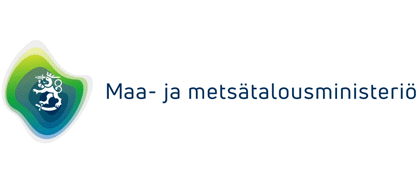Competitiveness of agriculture
Ensuring and improving the competitiveness of agriculture is a high priority. Profitable and competitive agriculture is the cornerstone of Finnish food production as a whole.
The competitiveness of agriculture consists of the profitability and productivity of production and the relative prices of production inputs and agricultural products. The competitiveness of Finnish agriculture is challenged by many different factors. Compared e.g. to southern Europe, the crop yield in Finland is low, the structure of arable lands is often fragmented, and distances are long. Our location in the north has impacts on the length of the growing season and production costs, which are higher than in many competitor countries.
However, the climate and environment also offer many strengths for us. Besides these, the high level of education and expertise of Finnish farmers and research of the high standard provide a solid basis for the production of clean, high-quality food.
The structure of Finnish agriculture is changing. As a result of this structural change, the number of farms decreases by a few percentage points per year while the average farm size keeps growing, which means that agricultural lands still stay in production. At the same time, production becomes more efficient and productivity grows.
However, controlled structural change in agriculture, development of production and maintenance and improvement of competitiveness require investments that tie up large amounts of capital. Agricultural investment aid has an important role in enabling these investments.
Productivity growth can also be achieved by introducing new technologies and making even wider use of automation. Higher production volumes on individual farms makes it easier to introduce modern production methods. Many of the modern production methods or technologies require sufficient production volumes to be feasible and economically profitable.
The competitiveness of agriculture can also be improved by responding to market demand even better. Value choices are increasingly important in guiding the consumers’ purchasing decisions. Some of the investment aids for agriculture are directly targeted to animal welfare and environmental issues. This makes it easier for farmers to introduce production practices that meet consumer expectations.
Setting-up aid for young farmers eases the financial burden associated with farm succession and contributes to creating better conditions for the development of farms.
Lisätietoja
Sanna Koivumäki, neuvotteleva virkamies
maa- ja metsätalousministeriö, ruokaosasto, Maaseudun kehittämisyksikkö Puhelin:0295162437 Sähköpostiosoite: etunimi.sukunimi@gov.fi
